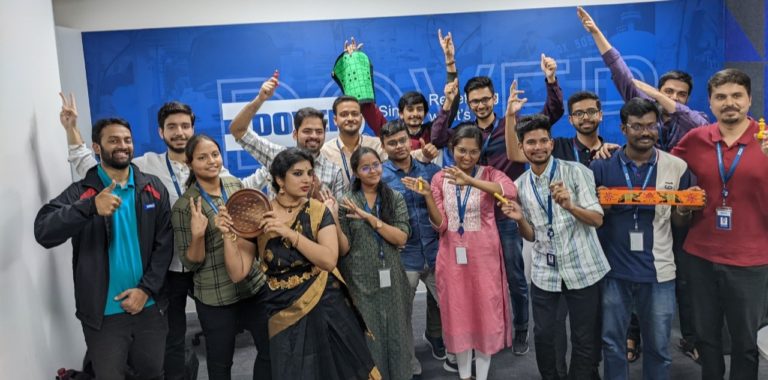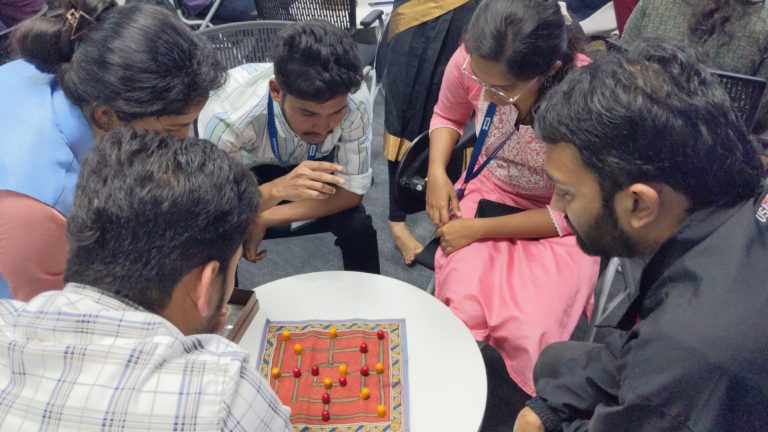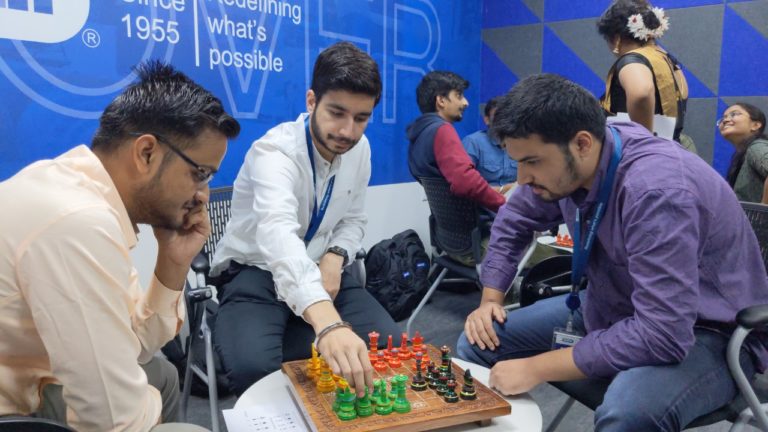Traditional Games
Organise a traditional games marathon for your team.
We are all tired of the games we play on our phones !
Conferences | Fun Activity | Wellness | Sales strategies | Team-building sessions | Learning sessions






SNEAK PEAK

Nine men's morris
Navakankari
Origin – probably in the Bhaja caves of Maharasthra during 2nd century C.E. Chennakesva temple, Karnataka and Gedera in Israel
Fun Fact – With perfect play from both players, it can result in a draw. You play well, you both win!
Benefits: Strategy | Planning | Observation
poltergeist
Pretwa
Fun fact – Pretwa, comes from the word ‘Pret’ meaning a spirit.
Benefits: Strategy | Planning Skills | Team Work


Panchi
Origin – Oral traditions show Panchi has been played in southern India for generations.
Fun fact – The game is part of a long list of single-track race games that birthed the current ‘Ludo’
Benefits: Strategy | Planning Skills
Four handed
chaduranga
Origin – Chaturanga or “Four limbs” is a poetic nod to ancient India’s army divisions: infantry, chariots, cavalry, and elephants.
Fun fact – Unlike Chess, Chaturanga allows the player to remain on board even after their King is lost.
Benefits: Strategy | Planning | Execution | Mindfulness


Paramapada
Snake & Ladder
Origin – In this 2nd century C.E. game, squares held virtues and vices.
Fun fact -In Paramapadam, the player has to navigate karma, good and bad, across the board, with divine destinations – Vaikuntha or Kailasa.
Benefits: Accuracy | Planning Skills | Observation
chauka bara
Origin –There are references of this game in some ancient Indian epics like the Mahabharata (not to be confused with Chausar though!)
Benefits: Strategy | Planning Skills | Foresight


Nine boys & girls
Nau Keti Keta
Origin – Nau Keti Kata is a two-player game native to India.
Fun fact – If you ever visit Varanasi and look hard enough, you may find this game of Lau Kata Kati etched on a platform at Sheetla Ghat!
Benefits: Strategy | Planning | Mindfulness
goats & tigers
Adu Huli
Origin – Probably Himalayan and also in Tamil Nadu excavations.
Fun fact – Initially, it drew inspiration from ancient Indian hunting practices, deliberately excluding luck.
Benefits: Strategy | Planning Skills | Observation


pachisi
Pagaday
Origin – The game is known to have been played in the Indus Valley in 2,300 BCE as is attested by the oblong dice that have been recovered from its sites.
Fun fact – Pachisi is known as the “poor man’s Chaupar” due to its simpler nature and use of cowries as currency.
Benefits: Teamwork | Strategy | Planning
mancala
Aliguli Mane
Origin – Karnataka, South India.
Fun fact – For game pieces, Coral wood, Tamarind seeds and cowrie shells were used.
Benefits: Analysis | Strategy | Mindfulness


















